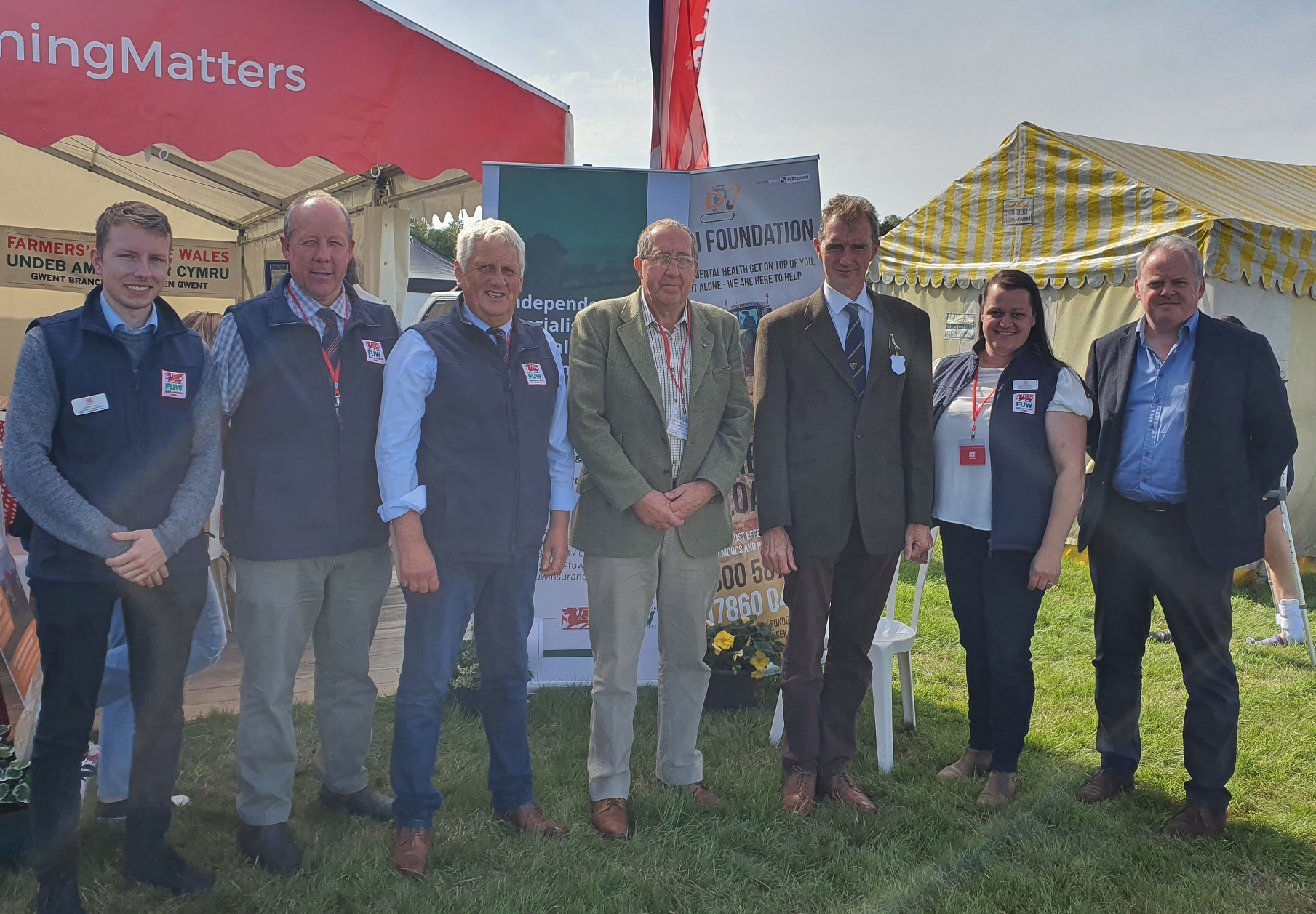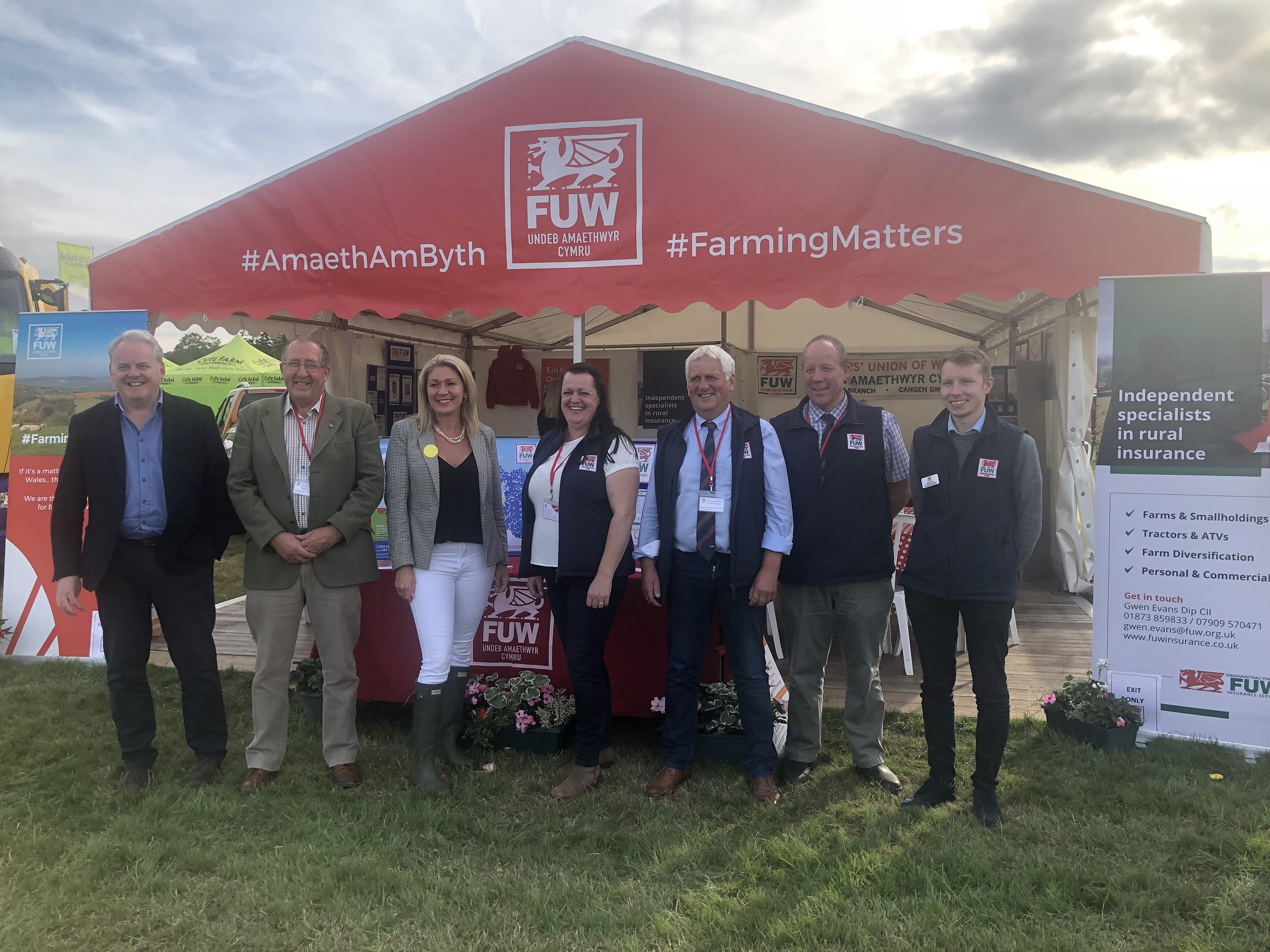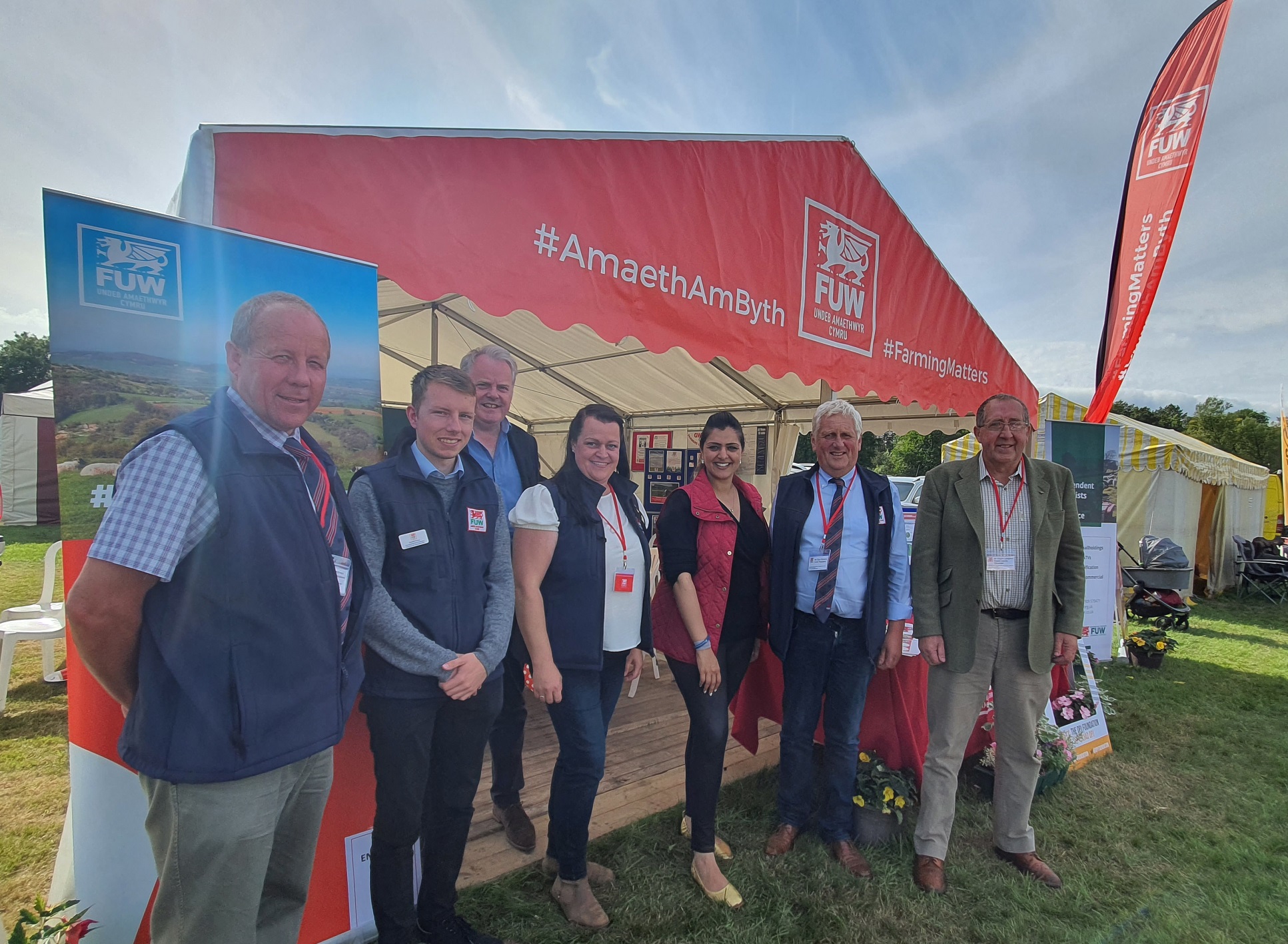 The Farmers’ Union of Wales and FUW Insurance Services Ltd. welcomed members, customers, friends of the Union and politicians at Usk Show on Saturday 11 September, where farming matters discussions took centre stage.
The Farmers’ Union of Wales and FUW Insurance Services Ltd. welcomed members, customers, friends of the Union and politicians at Usk Show on Saturday 11 September, where farming matters discussions took centre stage.
The event, which was one of a few to go ahead in person this year, was a busy and successful day, which celebrated the very best of Monmouthshire farming and rural life. Joining the FUW Ltd. group on the day were the DPJ Foundation, Wales Rural and Wildlife Crime Coordinator Rob Taylor, and police officers from the Gwent Police force. The county office also arranged a raffle and childrens competition.
FUW Glamorgan and Gwent County Executive Officer Sharon Pritchard said: “We enjoyed welcoming friends, family, members, FUW Insurance Services customers and many politicians to our marquee on the day. We were pleased to be able to support this event, meet people in person and discuss the most critical farming matters with local politicians.”
High on the agenda were farm support payments, potential cuts to the Welsh agricultural budget, the free trade deal with Australia, farm land in Wales being purchased by outside investors, Wales’ net zero targets and the Agricultural Pollution Regulations which are in the process of being reviewed.
FUW Gwent county chairman Wayne Langford said: “We enjoyed meeting with Peter Fox MS, Natasha Asghar MS, Laura Jones MS, Sam Kurtz MS and David TC Davies MP on the day. We had very constructive discussions around a variety of topics and thank all of them for joining us. The future of our family farms depends on us working with all political parties and we will do all we can to ensure that there are thriving, sustainable family farms in Wales for generations to come.”
 FUW Senior Policy and Communications Officer Gareth Parry added: “There are some big issues facing agriculture at the moment and for Wales the issue of businesses from outside of Wales coming in and buying up farms and land is a major problem.
FUW Senior Policy and Communications Officer Gareth Parry added: “There are some big issues facing agriculture at the moment and for Wales the issue of businesses from outside of Wales coming in and buying up farms and land is a major problem.
“In our meetings with the Members of the Senedd we highlighted our concern that carbon credits are being bought and used to offset the emissions of businesses outside of Wales which then can’t be used to meet Wales’ net zero targets.”
Mr Parry added that the FUW doesn’t object to the Welsh Government’s tree planting targets but that it is essential that the benefits accrue to farmers, communities and Wales as a country rather than large corporations who have no long-term interest in Wales.
Union officials further highlighted members' concerns around the Australia Free Trade deal when they met with David TC Davies at the show.
FUW President Glyn Roberts said: “We had a very positive meeting with David TC Davies and it provided us with an opportunity to reinforce how little Wales and the UK would benefit from such a deal. The UK Government’s own figures and projections demonstrate that the degree to which the agreement in principle published in June 2021 delivers on UK interests is negligible.”
Mr Roberts highlighted that the UK Government’s own figures suggest the UK-Australia trade deal could increase UK GDP by 0.01% or 0.02% in the long run under considered scenarios, equivalent to an increase in UK GDP of £200m and £500m respectively, with resulting increases in average UK wages of 0.01% and 0.05% respectively. The latter figures equate to an increase in the average annual UK wage in the long run of £3.15 and £15.75 respectively (based on the current average UK income).
“The UK Government modelling also suggests a deal similar to that proposed could lead to an increase in UK exports to Australia of 7.3%, compared with an increase in imports from Australia of 83.2%, with a large portion of the latter expected to comprise of Australian food imports, predominantly beef and lamb,” added Mr Roberts.
 Notwithstanding other concerns, the Union President said, inherent to such an increase in food imports would be a reduction in the UK’s food security through the displacement of domestic production and/or through additional reliance on food produced many thousands of miles away as opposed to in neighbouring countries.
Notwithstanding other concerns, the Union President said, inherent to such an increase in food imports would be a reduction in the UK’s food security through the displacement of domestic production and/or through additional reliance on food produced many thousands of miles away as opposed to in neighbouring countries.
“Let’s not forget that the shipping distance between Melbourne and London is around 12,700 miles, compared to a shipping distance of 220 miles between Rotterdam and London. Such a reduction in food security would come at a time when the coronavirus pandemic has highlighted the fragility of both domestic and global food supply chains, and how rapidly changes can occur due to unforeseen circumstances,” he said.


